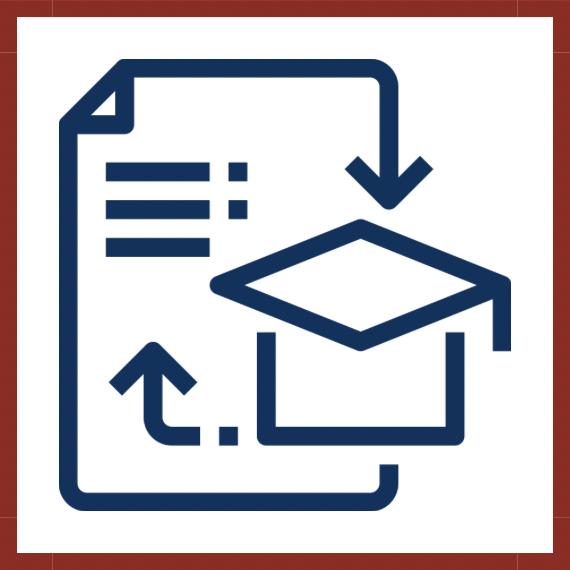Level and Duration of the Program: Undergraduate, 8 Semesters.
Aviation Systems and Technologies Engineering Department Mission
In order to keep pace with the technological advancements in the aviation industry, our goal is to create safer, more efficient, and eco-friendly systems for aircraft and other related equipment. We also strive to deliver exceptional education to our students in the field of aeronautical engineering, with the aim of becoming a prominent player in the sector.
Aviation Systems and Technologies Engineering Department Vision
Our goal is to establish ourselves as a premier information and technology hub within the aviation sector, equipping students with cutting-edge aviation expertise and practical skills. We aim to drive innovation by creating and integrating novel aviation technologies while simultaneously serving as a pioneer in sustainability and environmental stewardship.Our ambition is to play a pivotal role in shaping the aviation industry's future and meaningfully contribute to society.
Program Purpose: To equip students with the requisite expertise, proficiencies, and capabilities to excel in the aviation sector and facilitate their adaptation to technological advancements pertaining to aviation.
1. Aviation Knowledge: To teach our students the basic principles of aviation, aircraft design, air traffic management, flight systems, and similar subjects.
2. Technological Skills: To develop students' ability to use the latest technologies and software related to aviation.
3. Problem Solving: To teach the ability to identify, analyze and solve problems related to aviation
4. Communication and Collaboration: To develop good communication skills and to gain the ability to work effectively in a team.
5. Safety and Sustainability: To develop their ability to understand safety standards and apply sustainability principles in the aviation industry.
Program Outcomes: The Department of Aviation Systems and Technologies Engineering is expected to impart to its students a range of crucial skills and fundamental knowledge that are essential for a successful career. Some of these key abilities and accomplishments include:
1. Aviation Knowledge: Students who complete the program have basic knowledge in the field of aviation. This information may include aviation-related topics, such as aircraft design, air traffic management, flight mechanics, and airport operations.
2. Technological Capabilities: Students gain the skills to understand, use, and develop the latest aviation technologies. This may include the effective operation of aircraft systems and software.
3. Problem-Solving Skills: They develop their ability to identify, analyze, and produce effective solutions to the problems they may encounter in the field of aviation.
4. Collaboration and Communication: Ability to work in a team is developed. Ability to communicate effectively with other professionals is important in aerospace projects.
5. Safety and Sustainability Awareness: Understanding the safety standards and sustainability principles in the aviation industry and the ability to act consciously on these issues are gained.
6. Industry Experience: Through internships or practice opportunities, students have the chance to gain real-world experiences. This ensures that they are ready to work when they graduate.
7. Leadership Abilities: Programs can provide students with the opportunity to develop their leadership skills so that they can succeed in management positions in the future.
Program Employment Areas: Graduates of the Department of Aviation Systems and Technology Engineering are eligible for various employment opportunities in the aviation sector. These fields present several avenues for career advancement of those who have earned degrees in aerospace systems and technology. Graduates may choose to pursue employment in these various areas of work based on their personal interests and level of expertise. Given the continual growth and expansion of the aviation industry, a wealth of employment opportunities is often available to graduates.
1. Aeronautical Engineering: Aeronautical engineers can work in areas such as aircraft design, flight control systems, engine engineering, and aeronautical technologies.
2. Air Traffic Management: Air traffic controllers and managers ensure safe and efficient air traffic management at airports.
3. Flight Operations: Professionals in this field manage flight operations, prepare flight plans, and ensure flight safety in airlines and general aviation companies.
4. Aviation Security and Supervision: Aviation safety professionals enforce aviation safety standards and oversee aviation businesses.
5. Airport Management: Airport managers and business specialists manage the daily operations of airports.
6. Aviation Technologies and Software Development: Aviation software developers and technologists are involved in the development and maintenance of specialized aviation software.
7. Aviation Education: They can work as trainers and specialists who provide training in the field of aviation systems and technology.
8. Research and Development: Research and development professionals who develop new technologies and improve existing technologies in the aerospace industry.
9. Consulting and Project Management: They provide consulting and project management services for aerospace projects.
Course Process: The manner in which courses within the Department of Aeronautical Systems and Technology Engineering are conducted may vary contingent upon the specific program offered by our institution. The delivery of course content is facilitated through an Internet-based Learning Management System (LMS) that enables students to attend classes and participate remotely in the program.
1. Core Courses: At beginning of the program, core courses are given to provide students with basic knowledge in the field of aviation.These courses may include mathematics, physics, basic engineering principles, and topics related to aviation.
2. Advanced Aviation Courses: Students then take more advanced courses in aviation systems, aircraft design, air traffic management, aircraft engines, and so on. These courses focus on the development of aviation knowledge and technological abilities.
3. Internships or Practicum: Programs often offer internship or practicum opportunities for students with the goal of giving them a real-world experience. This helps students understand business processes in the industry and gain work experience.
4. Project Work: Students can focus on their own areas of interest by working on graduation projects or dissertations. These projects help students improve their problem-solving abilities.
5. Collaboration and Communication: Effective communication and teamwork are important in the aviation industry. Therefore, programs provide students with the opportunity to develop these skills.


Bölüm Müfredati / Department Curriculum
